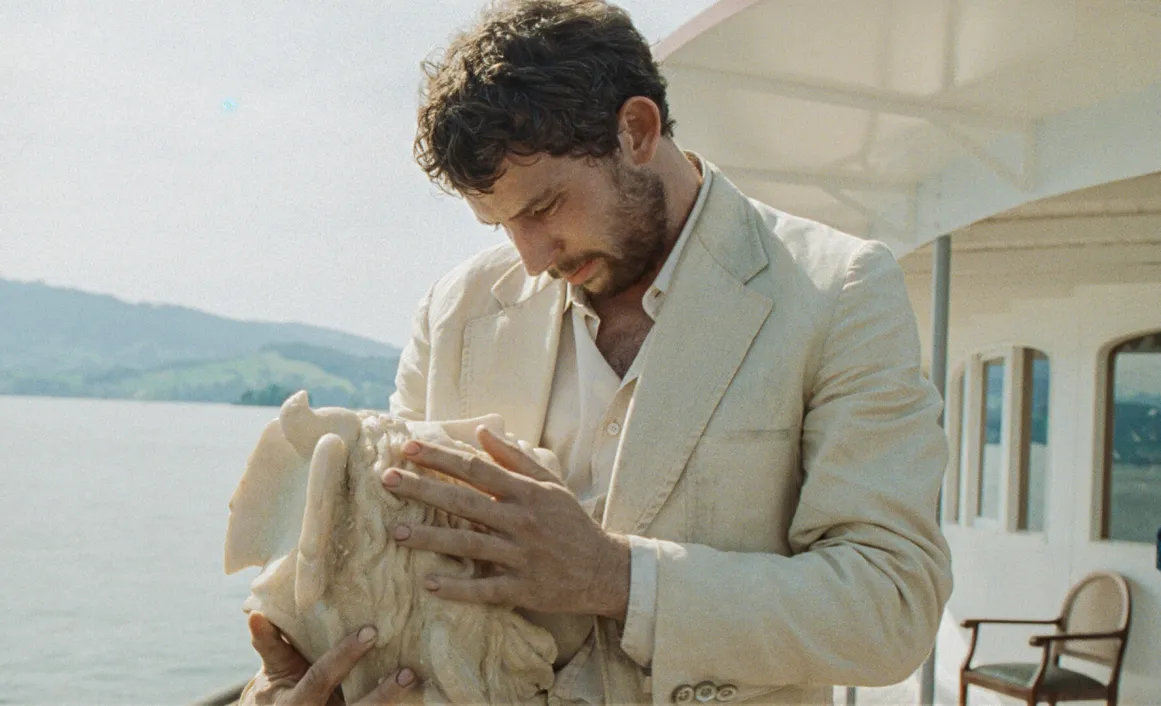Why does every movie released today have active contempt for their audience? Saltburn by Emerald Fennell treats its viewers as fools incapable of parsing any subtlety, and any number of action movies topping box office charts right now can be considered slop at best. There’s no sense of wonder, no love of humanity, present in any of them. There’s frankly a plague of incuriosity—so thank God for Alice Rohrwacher and her latest film La Chimera.
Starring Josh O’Connor (The Crown, God’s Own Country), the story of La Chimera surrounds a group of tombaroli (tomb robbers) who’ve taken in Arthur (O’Connor), a gruff, down-on-his-luck British archeologist with a preternatural gift of finding ancient graves underground. Arthur starts the film on a train not long after his release from prison, dreaming of a woman later identified as Beniamina, his missing girlfriend. He visits her mother, Flora (Isabella Rosselini), who tutors Italia (Carol Duarte) in singing, while also employing her as a maid. The story follows Arthur’s “career” with the tombaroli as they steal artifacts to sell to a secretive buyer named Spartaco, interspersed with joyous scenes from everyday life, like beachside dancing and a small-town parade.
Intertwining the realist with the mythical and magical has been a throughline of Rohrwacher’s films, and La Chimera is no exception. Arthur uses dowsing rods and visions to locate graves with perfect accuracy; he also deals with his illegally-set-up, ramshackle home being demolished. But La Chimera, too, is a modern retelling of Orpheus and Euridyce, with a bittersweet ending that left the NYFF audience silently choking back sobs.
Like Alice Rohrwacher’s Happy as Lazzaro, the focus of La Chimera isn’t on the rich and powerful; it’s on the downtrodden, people who make a living in a way that isn’t necessarily legal. It’s in these places, though, where Rohrwacher finds human connection which challenges the conception that families have to be nuclear. Towards the end of the film, Italia has taken refuge with her children in an abandoned train station, where a commune of other single mothers and their families has formed. Children play on overgrown railroad tracks; women cook together. There’s a deep, pervasive love for humanity seeping through La Chimera that no other director but Rohrwacher seems to be able to capture.
Hélène Louvart, who previously worked on Beach Rats and Never Rarely Sometimes Always, mixed 35 mm and 16 mm film for a hazy, Fellini-esque result that underscores the dreaminess of Rohrwacher’s script. The turquoises and pinks stand out particularly well, and each shot is framed with a charming, subtle roundedness at each corner from the film stocks used.
After the film’s premiere at NYFF came a Q&A, where Josh O’Connor explained how he came to work with Rohrwacher. His younger brother—certifiably not a movie buff—called him to talk about Happy as Lazzaro, so he saw it himself. After the film, he “walked around London for an hour and a half, thinking about it,” making him realize he simply had to work with her. He wrote to her “five times across three years, to Alice Rohrwacher, Italy, and then put it in the post box” before one eventually got to her. What else could it be but kismet?
After Seeing Josh O’Connor on screen, cradled by the loving gaze of Hélène Louvart’s camera, it’s no wonder Rohrwacher chose to work with him. Even as a cheerless man in crumpled clothing, O’Connor captures the grief, and the joy, of everyday life in a precious and understated way. La Chimera blends the real with the myth in a way that can only be described as magical.

